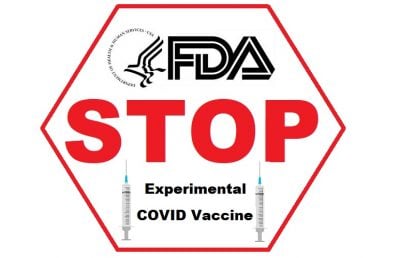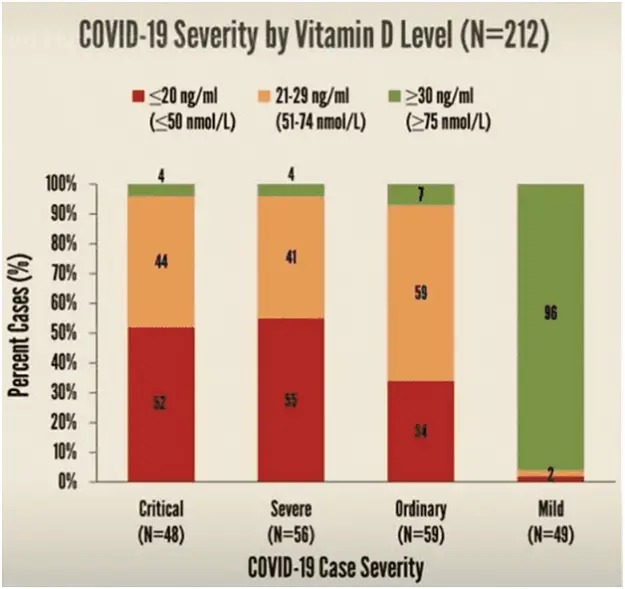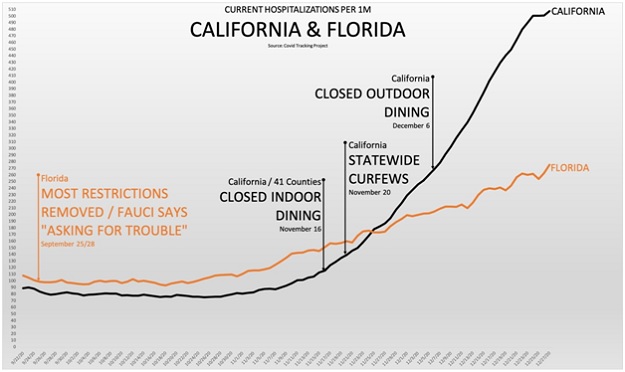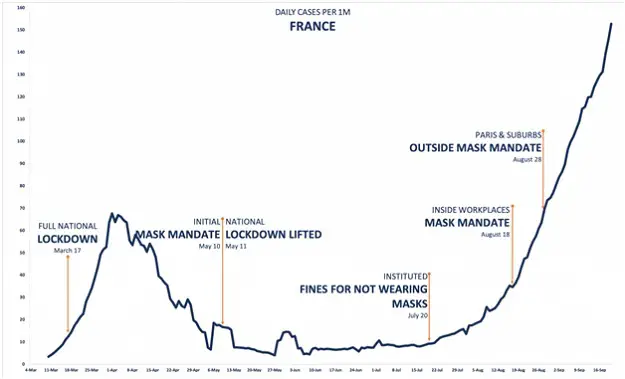Why Hardly Anyone Trusts the Virus Experts

Early in the pandemic, “trust the science!” could actually be used in a debate without attracting derisive laughter. But as the flip-flops, mistakes and, yes, lies have accumulated, a consensus seems to be forming that the health care authorities are no more trustworthy than the people running Congress or the Fed.
For proof, let’s start with vitamin D, which sure seems to lessen the severity of coronavirus infections. As the chart below illustrates (couldn’t find the source, but google “covid vitamin D” and you’ll find lots of studies that track with this data), people with higher levels of vitamin D in their bloodstream tend to experience covid-19 as a non-event while people low levels found the infection life-threatening.

There are obvious questions about causality here, so calling vitamin D a “cure” is going way too far. But if it has even a marginal effect – and the data suggest considerably more — a rational government would, you’d think, be handing out vitamin D like Halloween candy. In fact, since we’re mandating/prohibiting all kinds of other behaviors, we might expect vitamin D consumption to be required along with masks and social distancing.
Even covid-czar Anthony Fauci recently said:
“If you are deficient in vitamin D, that does have an impact on your susceptibility to infection. So I would not mind recommending — and I do it myself — taking vitamin D supplements.”
So why aren’t family-sized bottles of vitamin D arriving in the mail from the CDC? A cynic might wonder if the fact that Big Pharma doesn’t make much money from cheap, widely available supplements plays a role in the government’s apparent lack of interest.
Now about those lockdowns. Tom Woods has been producing charts that appear to show virtually no difference in virus outcomes between US states with aggressive lockdown policies and those without. California, for instance, has shuttered most of its small businesses and imposed widespread curfews, while Florida hasn’t. Here’s the result:

As for the rest of the world – where they’re supposedly doing better than the US – the pattern of zero correlation between lockdowns and virus spread seems to be holding. France imposed a full national lockdown in March – after which the virus spiked. Then they added mask mandates (indoor and outdoor), with fines attached. And daily new cases soared.

Then of course there’s the lying. Dr. Fauci first claimed that masks don’t help – when he believed they did help — because he feared mask shortages for health care workers. He also admits to changing the official line on herd immunity according to what he thinks we’re ready to hear.
And, in what sounds more like incompetence than dishonesty, he’s apparently been answering the question “when will life go back to normal?” with whatever pops into his head at the time. In early 2020, it was the coming Autumn. In July, it was “a year or so.” More recently it’s “well into 2021.”
But the biggest and by far the most outrageous reason for this growing mistrust has to be the World Health Organization which, well, read for yourself:
WHO official urges world leaders to stop using lockdowns as primary virus control method
The World Health Organization’s special envoy on COVID-19 urged world leaders this week to stop “using lockdowns as your primary control method.”
“We in the World Health Organization do not advocate lockdowns as the primary means of control of this virus,” Dr. David Nabarro said to The Spectator’s Andrew Neil. “The only time we believe a lockdown is justified is to buy you time to reorganize, regroup, rebalance your resources, protect your health workers who are exhausted, but by and large, we’d rather not do it.”
Nabarro went on to point out several of the negative consequences lockdowns have caused across the world, including devastating tourism industries and increased hunger and poverty.
“Just look at what’s happened to the tourism industry in the Caribbean, for example, or in the Pacific because people aren’t taking their holidays,” he said. “Look what’s happened to smallholder farmers all over the world. … Look what’s happening to poverty levels. It seems that we may well have a doubling of world poverty by next year. We may well have at least a doubling of child malnutrition.”
In the United States, lockdowns have been tied to increased thoughts of suicide from children, a surge in drug overdoses, an uptick in domestic violence, and a study conducted in May concluded that stress and anxiety from lockdowns could destroy seven times the years of life that lockdowns potentially save.
The health care establishment could have saved a lot of time — and embarrassment — by just asking regular people about this stuff. But then they would have made a lot less money.
*
Note to readers: please click the share buttons above or below. Forward this article to your email lists. Crosspost on your blog site, internet forums. etc.

